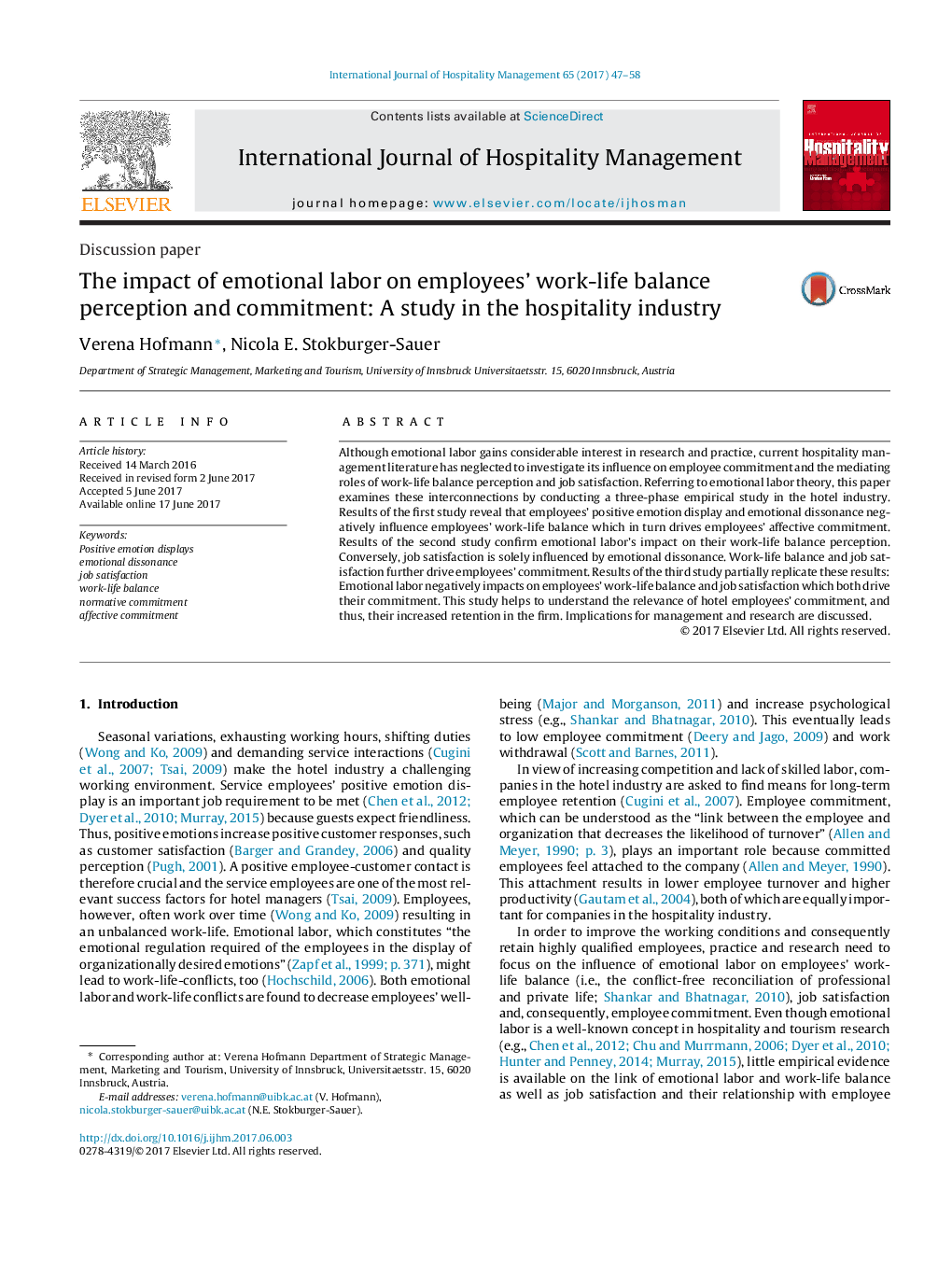| Article ID | Journal | Published Year | Pages | File Type |
|---|---|---|---|---|
| 5108223 | International Journal of Hospitality Management | 2017 | 12 Pages |
Abstract
Although emotional labor gains considerable interest in research and practice, current hospitality management literature has neglected to investigate its influence on employee commitment and the mediating roles of work-life balance perception and job satisfaction. Referring to emotional labor theory, this paper examines these interconnections by conducting a three-phase empirical study in the hotel industry. Results of the first study reveal that employees' positive emotion display and emotional dissonance negatively influence employees' work-life balance which in turn drives employees' affective commitment. Results of the second study confirm emotional labor's impact on their work-life balance perception. Conversely, job satisfaction is solely influenced by emotional dissonance. Work-life balance and job satisfaction further drive employees' commitment. Results of the third study partially replicate these results: Emotional labor negatively impacts on employees' work-life balance and job satisfaction which both drive their commitment. This study helps to understand the relevance of hotel employees' commitment, and thus, their increased retention in the firm. Implications for management and research are discussed.
Keywords
Related Topics
Social Sciences and Humanities
Business, Management and Accounting
Strategy and Management
Authors
Verena Hofmann, Nicola E. Stokburger-Sauer,
